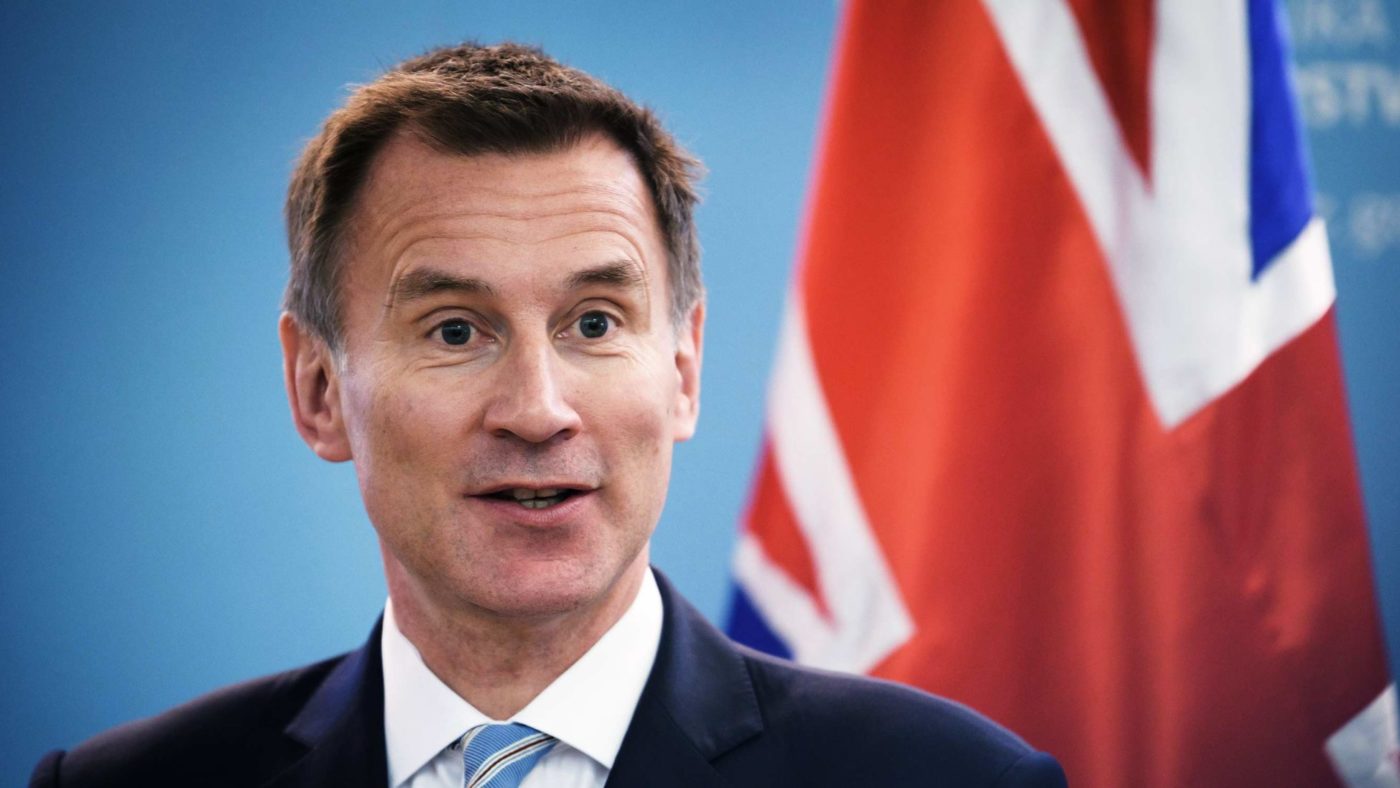The head of the Downing Street Delivery Unit is quitting government, according to a report in yesterday’s Times. Emily Lawson had worked on the vaccine rollout, but now wants out, as Downing Street has apparently become ‘much more political in terms of the areas it wants to focus on’.
The hugely successful vaccine rollout brought in skills and professional management from the private sector. And now normal service has resumed, it seems, and the Government’s problems with delivery and productivity will continue. Or is this government planning permanent change?
At the Centre for Policy Studies’ Margaret Thatcher Conference, the Chancellor announced the creation of a new productivity task force, to be led by his deputy John Glen to review the performance of government departments and the NHS, amid fears the public sector is failing to keep pace with the private sector.
He deserves much credit for this initiative – not least as getting more bang for our trillions of bucks is the only way that we will ever see meaningful economic growth again.
But will this taskforce actually yield useful results?
The worry is that Jeremy Hunt was too polite to set out the scale of the challenge, of how bad public sector productivity actually is. The figures speak for themselves: since 1991, productivity in the private sector has increased by over 26% while ‘Government Services’ have seen productivity fall by 16%.
This is bad enough – but remember that this is a time of unprecedented technological advance in most fields. The internet is less than 25 years old in any substantive sense and the digital economy is perhaps only a decade old and still advancing at pace. This should have turbo-charged productivity growth, particularly in a public sector that is mostly made up of the kind of services that ought to be most responsive to technological advances. At its simplest, surely the work of civil servants should have been greatly aided by computers and automation?
If you doubt that the public sector has failed to reap the benefits of new tech, of how the public sector has failed to exploit the potential for making things work better, consider one tiny example: the NHS and fax machines. You probably haven’t used a fax machine for decades. You almost certainly won’t have bought one this millennium. But in 2018 it was revealed that the NHS was then the world’s largest purchaser of new fax machines, leading the Secretary of State to ban any further purchases from 2020. Yes, today, it will come as a relief to those interested in archaic technology to hear that the NHS is still using 800 fax machines.
Why is the public sector performing so poorly? And what can be done about it? From what I can find, in just the past 13 years there have been two ‘efficiency reviews’ (in 2010 and 2017) and four spending reviews (in 2010, 2015, 2020 and 2021). It is not impossible that another review could yield some answers but it is crucial that the diagnosis of the reasons for poor public sector productivity are identified accurately – and addressed.
We have attempted to do this in a recent report that I co-authored with the successful entrepreneur Patrick Barbour. In particular, we identify two causes of broken government: the mismatch of experience and skills of ministers to the requirement of their roles; and the loss of institutional memory and experience through ministers and senior civil servants frequently changing roles and departments.
To put this right, a chief executive role should be created for every department. He or she should be recruited externally, should be totally responsible for all operational management and delivery of government issues. Not policy. Just the implementation of policy.
As it stands, ministers – nearly always with limited management experience – have the impossible task of managing organisations larger than most FTSE 100 corporations. And they stay in office for less than a couple of years. Consider, for example, the Department for Education: it is one of the UK’s largest employers with nearly 11,000 administrative staff and more than 200 roles with the title of Director General, Director, or Deputy Director. But since 2010, it has had, on average, a new secretary of state every 17 months. How can they possibly get anything done?
In addition, central government should do far less. Power, accountability and finance should all be pushed down to the lowest possible level so that the citizen can know who to blame when anything goes wrong.
The Chancellor is right to appoint the taskforce to investigate the issue of failing public sector productivity. The question is whether he and his team will be bold enough to challenge all the vested interests which will defend the status quo. We can only wait and see whether his plans for reform match the size of the problem.
Click here to subscribe to our daily briefing – the best pieces from CapX and across the web.
CapX depends on the generosity of its readers. If you value what we do, please consider making a donation.


